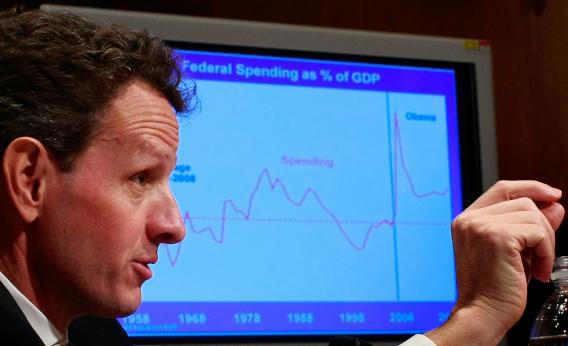James Pethokoukis has an important post up at the American Enterprise Institute trying to warn conservatives off the unrealistic notion of capping federal spending at 18 percent of GDP via constitutional amendment even as the population ages.
He’s doing the Lord’s work. But even though I don’t have his conservative street cred, I do think I have an argument about this that should be even more persuasive to a conservative. The key point is that eliminating the supply of money to finance politically popular public services doesn’t eliminate the demand for those services. Instead, it pushes policy entrepreneurs to devise inefficient and non-transparent regulatory cross-subsidy schemes. Look at any really problematic element of the Affordable Care Act, for example, and what you’ll see behind it is a kludgy effort to avoid a tax increase while still providing the service. That’s how you get the threat to fine employers for not providing health insurance to their full-time employees. But of course it’s not “fair” to apply that rule to small businesses, so the smallest employers are exempted from the regulation. This is, in effect, a tax on business growth (in principle, a firm with 49 employees could cost itself $100,000 in fines to add a single full-time minimum wage worker) designed to finance the provision of health insurance to firms with a primarily low-wage workforce, but it’s not “taxes” and “spending” as an accounting convention.
And so it goes. Instead of spending money on food stamps, you could require supermarkets to give discounts to low-income families. Instead of taxing gasoline, you could have ever-stricter fuel efficiency standards. And the instead of using the revenue to finance deployment of clean energy technology, you could have a regulatory mandate on utilities to do it. We already do a fair amount of this kind of thing because it makes it easier to hide the ball in terms of who bears the costs. But because these policies are less transparent, they are much more prone to perverse, unintended consequences. Thoughtful people should be trying to move politicians off this incestuous blend of corporate paternalism and overregulation, and onto the sweet terrain of paying for services with taxes. A constitutional rule barring spending in excess of 18 percent of GDP does just the reverse.
